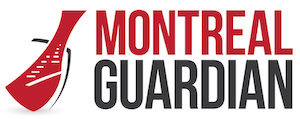In an exclusive interview, Co-Executive Director Wade Thorhaug of Food Secure Canada delves into the organization’s ongoing efforts to address food insecurity across the nation. With a focus on sustainable food systems, community engagement, and policy advocacy, Food Secure Canada is at the forefront of the movement to ensure that every Canadian has access to safe, nutritious, and culturally appropriate food. This conversation sheds light on their innovative programs, the challenges they face, and their vision for a future where food security is a fundamental right for all.

Describe your charity/non-profit/volunteer work in a few sentences.
I have volunteered for a number of organizations including an artist residency, a fire department, a thrift store, air search and rescue, a pride society, and a food bank. I was the president of a non-profit organization in community food services in Iqaluit, Nunavut, and later became its first ED. I am presently a co-ED at Food Secure Canada.
What problem does it aim to solve?
Food Secure Canada aims to unite the voices in Canada’s civil society food movement towards policy solutions at the federal level. We also create opportunities for the food movement to convene, strengthen networks, and share information.
When did you start/join it?
I joined in early 2023 but the organisation has existed in different forms since the early 2000s.
What made you want to get involved?
Through my previous work I began to learn about the systemic issues that contributed to food insecurity, and after devoting a great deal of my energies to local interventions I wanted to work more directly on systems change.
What was the situation like when you started?
The country was coming out of the pandemic and there was some hope that lessons learned during that time would be applied to long-term changes, but a return to normal was largely what developed insofar as food systems are concerned.
How has it changed since?
We have gone through a period of rapid inflation which has brought the topic of food systems and affordability to national attention. As a result, we began a project exploring affordability and the parameters that affect it, such as equitable income, corporate concentration, and alternatives to dominant food systems.
What more needs to be done?
There is no shortage of issues surrounding our food systems that need change, from the way our food is unsustainably produced to the way it is inequitably distributed.
How can our readers help?
Getting informed about food systems issues is the best place to start. For decades our beliefs and decisions around food have been shaped by the food industry, so learning about food systems through a non-profit, civil society lens is key to getting an unbiased understanding.
Do you have any events coming up?
We have a webinar on July 9th that will explore the co-op alternative to corporate groceries. In November we will have an in-person gathering on the issue of affordability.
Where can we follow you?
Website | Facebook | Instagram | LinkedIn
PAY IT FORWARD: What is an awesome local charity that you love?
Santropol roulant! They do great food programming for the Montreal Plateau neighbourhood.




